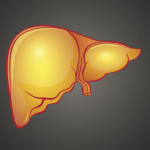A single boosting-level dose of Norvir (ritonavir) did not reduce the ability of insulin to control blood sugar, according to a study published in the November 1 issue of the Journal of Acquired Immune Deficiency Syndromes.
Not long after the protease inhibitor (PI) drug class was introduced in December 1995, providers began noticing that their HIV-positive patients were developing diabetes, gut-fat accumulation and other signs of impaired insulin sensitivity. One PI that profoundly affected insulin sensitivity was Norvir, which was originally prescribed at a dose of 600 milligrams (mg) twice a day.
In the early 2000s, Norvir was no longer used therapeutically but was instead prescribed, at significantly lower doses, to boost the levels of other PIs. The usual Norvir boosting dose is 100 to 200 mg a day. Daily dosage with the fixed-dose combination tablet Kaletra, for example, is 800 mg lopinavir plus 200 mg Norvir.
Earlier studies of Kaletra still found some degree of insulin impairment, despite the low amount of Norvir included in the fixed-dose combination. What’s more, insulin sensitivity data in studies exploring Norvir combined with other PIs have been mixed, which has led to uncertainties regarding the role of low-dose Norvir boosting in the development of insulin resistance and, with it, the risk of diabetes.
To explore this matter, Steven Taylor, MD, from the University of California in San Francisco, and his colleagues studied a single 200 mg dose of Norvir in 10 HIV-negative volunteers. The study design was as follows: Five people received Norvir, and the other five received a placebo. All then had their insulin sensitivity measured with an insulin clamp. Twenty-one days later, the group came back, and the five who initially received Norvir now received a placebo and those who’d taken a placebo now took Norvir. The insulin clamp test was then repeated. This kind of crossover study allows researchers to more precisely study the drug’s effect.
Taylor and his team found that 200 mg of Norvir—a standard boosting dose—had absolutely no impact on insulin sensitivity. This was true despite the fact that actual Norvir blood levels were significantly higher after a single dose here than when Novir was given with either lopinavir or Reyataz (atazanavir) in previous studies. This led them to state that “the data presented here directly demonstrate the lack of an effect of boosting dose ritonavir on insulin resistance.
They concluded: “Consideration should be given to these findings when assessing the metabolic effects of antiretroviral regimens and advising patients.”
Advertisement
Advertisement
Advertisement






1 Comment
1 Comment